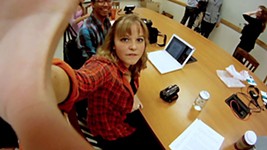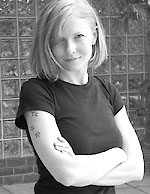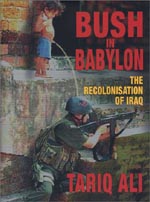Inherit the Net
Constitutional superstar Lawrence Lessig
By Roger Gathman, Fri., March 1, 2002
But that was when free speech was merely prosecuted by the state. The new threat is much broader and subtler: Free speech is being contractualized. The new enemies aren't clumsy DAs prosecuting communists and purveyors of Lady Chatterly's Lover, but publishing houses wanting to extend the copyright on Lady Chatterly's Lover until the last angel sounds the trumpet. They are e-commerce companies trying to patent the way you click through their site. And they are seizing what used to be common property through extensions of patent and copyright law.
So where is the new Darrow to fight this evil? Meet Lawrence Lessig -- constitutional lawyer, superstar. When Stanford snatched him from Harvard, it made a splash in the legal world comparable to Britney Spears jumping to Coca-Cola. Lessig's reputation has been made in two brilliant books, Code and Other Laws of Cyberspace and the soberly titled Freedom of Ideas, in which he makes the case for what he calls the "innovation commons." We spoke with him by phone in anticipation of his SXSW appearance:
Austin Chronicle: You have been quoted as saying "We need an environmentalism for the Internet." What do you mean by that?
Lawrence Lessig: The environmental movement took off when duck hunters realized they had the same interest as duck lovers. If you pollute the streams and the air, there won't be any ducks to shoot or watch. They saw that their interests were connected with the environment. We want to get a basic idea across: Keeping the Net open and free is a critical factor in making the Net a commercial multiplier.
AC: There's a phrase, "tragedy of the commons," which you discuss in Freedom of Ideas. Could you explain that?
LL: The idea is that if some resource is left open to the public, individuals will maximize their use of it until it is used up. So we have to control our access to it. This isn't true, however, of all commons. Take the English language. Because you speak it doesn't mean you take those words from somebody else. The Internet is an "innovation commons." Everyone is free to modify and adapt things on the Net, and anybody can get access to those innovations, because there isn't a limit to growth.
AC: In your book, you emphasized the difference end-to-end networks make. What does that mean?
LL: The Internet is constructed on the principle that the network itself is "dumb" -- it can't distinguish between applications and content -- while all the intelligence is at the end -- the input of the users. This is the single most important thing about the Net, and what makes it different from, say, the telephone network.
AC:You've been in the forefront of the fight against extending patent law. Why? How is that going?
LL: Patents aren't property. What patents do is this: The government grants a monopoly for a certain limited time. That is what the founding fathers thought. It is a constitutional principle, and now it is being distorted by very well-funded pressure groups who have pushed to get software included as normal, patentable items, to crush Open Source software. We are fighting against this, but it is an uphill fight. There's not much power on our side. ![]()
Lawrence Lessig will speak on "The Creative Commons" on March 8, 3-4:15pm.










